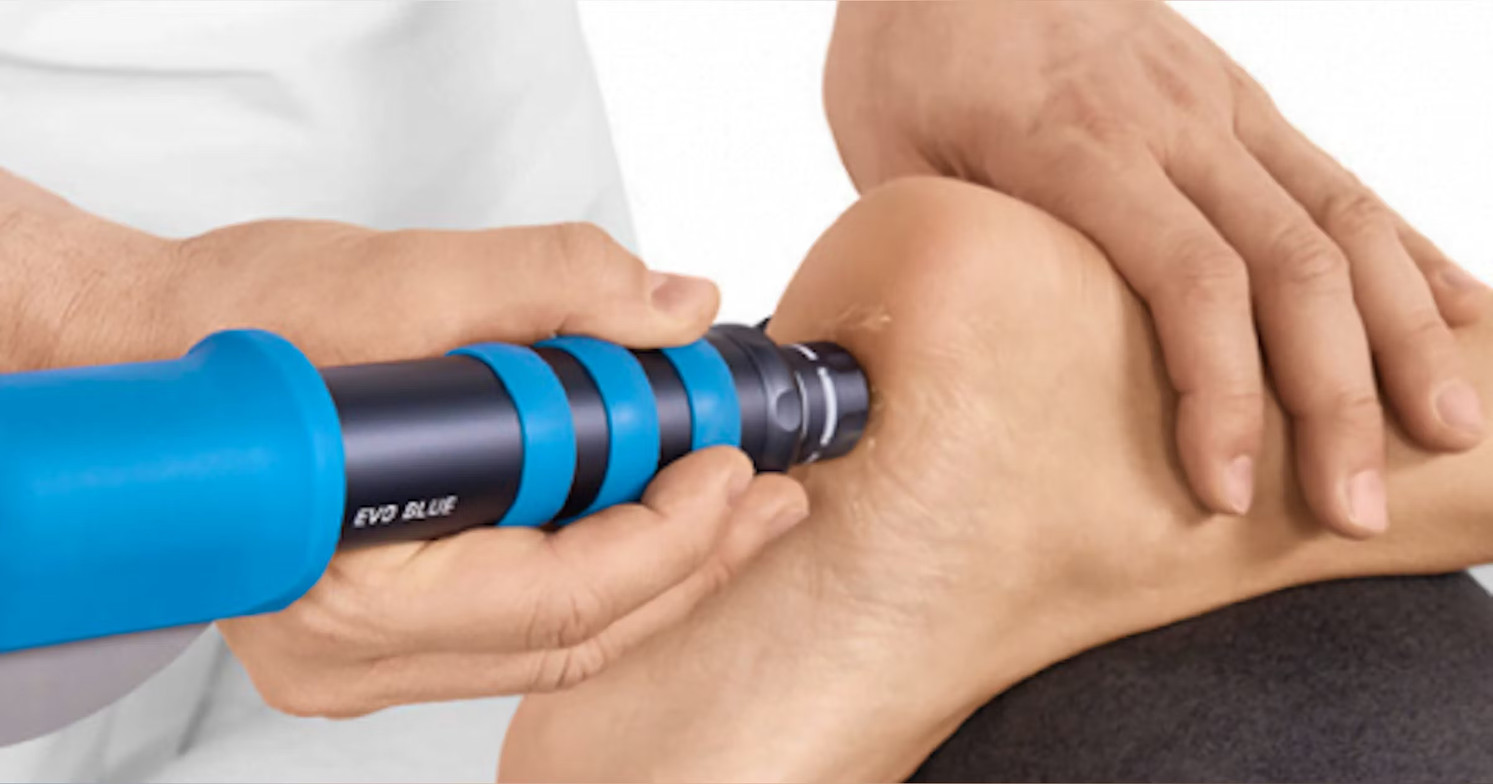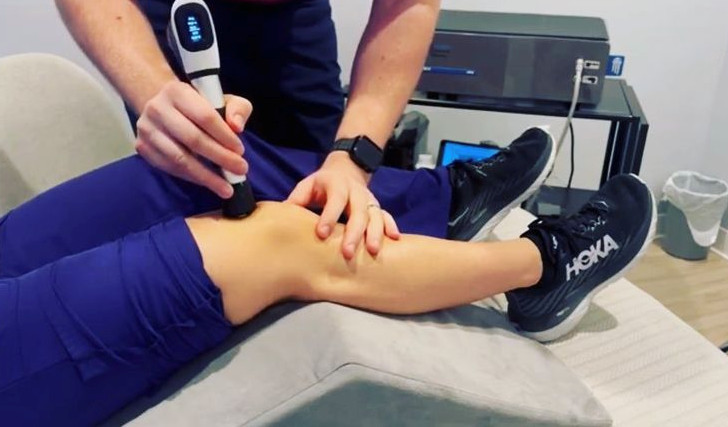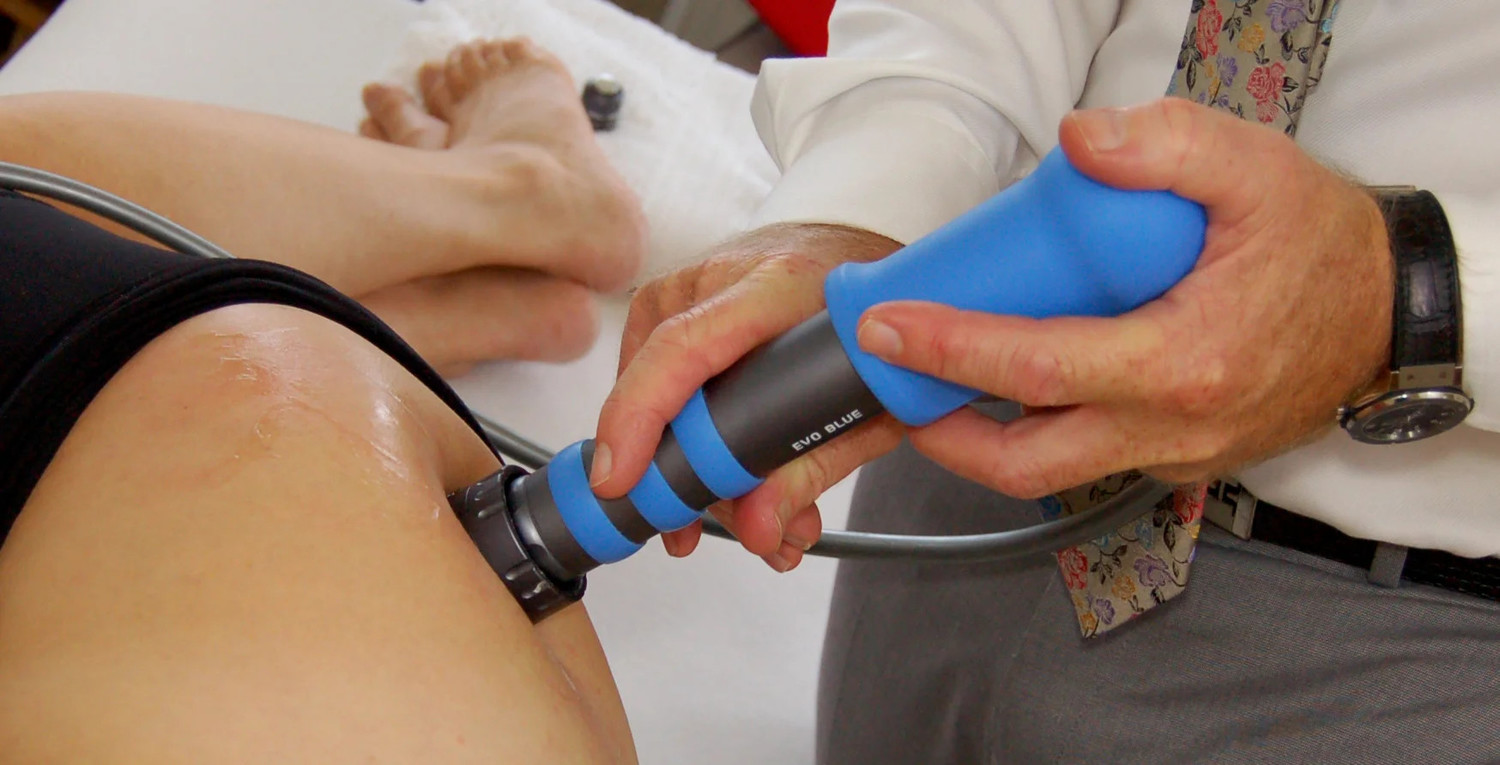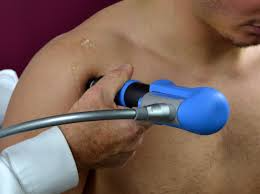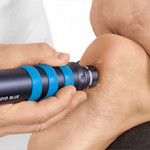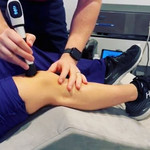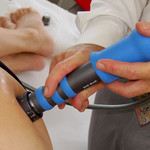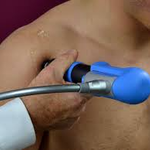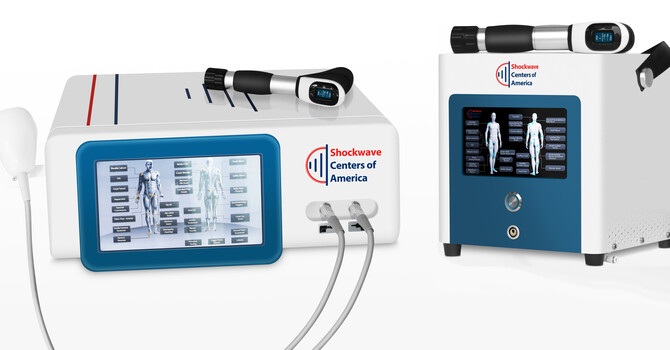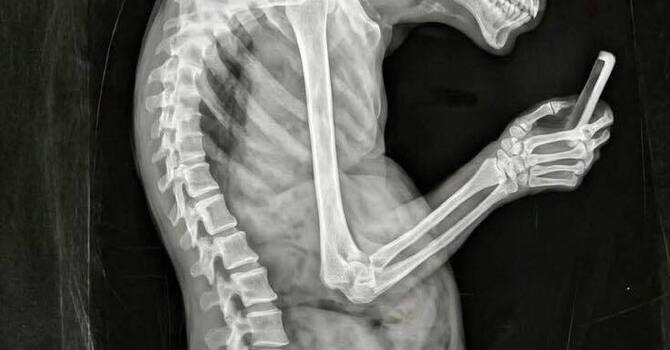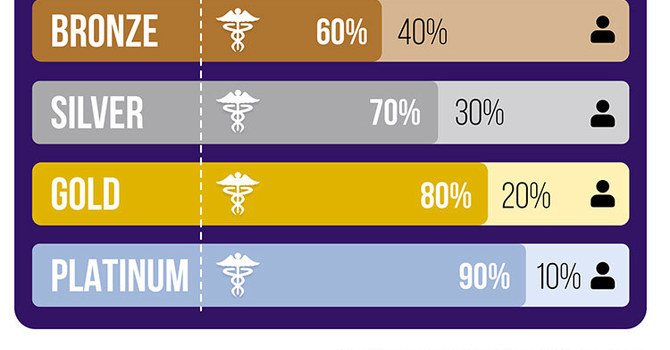At Spine Align Chiropractic & Wellness in Huntsville, we’re committed to using the safest and most effective technologies to help our patients heal naturally. One of our favorite tools is radial shockwave therapy, a gentle yet powerful form of tissue-regeneration treatment. Unlike focused shockwave systems, which can be too intense or carry more contraindications—especially in sensitive areas like the spine and neck—radial shockwave is safer, more comfortable, and just as effective for most musculoskeletal conditions. It promotes natural healing, improves mobility, and relieves pain without injections, medication, or downtime.
Many people have heard of shockwave therapy but aren’t sure about the difference between radial and focused systems, or why we choose to use radial shockwave in our clinic. Here’s what you need to know about how the two technologies differ, why radial shockwave is the safer choice for most musculoskeletal conditions, and how it can deliver comparable results — often at a fraction of the cost.
Understanding the Two Types of Shockwave Therapy
Focused Shockwave Therapy (F-SWT)
Focused shockwave therapy concentrates high-energy acoustic pulses into a small, precise focal point at a specific tissue depth. This allows it to target structures such as deep tendon calcifications, chronic bone injuries, or non-union fractures.
While it can be useful for certain deep pathologies, the focused beam can also deliver energy intensities high enough to damage sensitive tissue, like the lungs, instestines and brain, when applied over the spine, neck, or nerve-dense regions, making it less suitable for broad, general musculoskeletal care.
Radial Shockwave Therapy (R-SWT)
Radial shockwave uses a pneumatic applicator to generate pressure waves that radiate outward through soft tissue, reaching depths of roughly 3–5 cm.
This broader wave dispersion allows treatment of larger surface areas such as the neck, shoulders, back, hips, arms and legs, hand and feet — areas commonly affected by muscle tension, joint stiffness, inflammation or chronic musculoskeletal conditions.
Because the energy is distributed more evenly and with lower peak intensity, radial shockwave carries fewer contraindications and is considered much safer for spinal, cervical, and full-back applications. It’s also extremely well tolerated by patients, making it an excellent option for seniors, athletes, and anyone seeking non-invasive pain relief.
Safety and Contraindications
-
Radial shockwave is gentler on the body. Its lower energy density means it can be used safely over broader areas and near sensitive structures like the spine without causing harm.
-
Fewer restrictions. Unlike focused shockwave, which must be avoided in certain regions or post-surgical areas due to potential tissue irritation, radial shockwave can typically be used safely in chiropractic care settings.
-
Ideal for the neck and back. Radial therapy can be applied comfortably across the cervical and lumbar regions — helping relieve bulging discs, spinal stenosis, degenerative disc disease, spinal nerve impingement and improve overall spinal mobility.
Effectiveness: Achieving Comparable Results
Clinical studies show that both radial and focused shockwave promote healing through mechanical stimulation, increased blood flow, and tissue regeneration. While focused shockwave reaches deeper and is limited in its safely treatable conditons, radial shockwave effectively treats a wide range of soft-tissue, tendon, ligament, and fascia-related conditions — which make up the majority of musculoskeletal complaints seen in chiropractic practice.
In fact, many patients experience the same quality of relief with radial shockwave. The only difference is that radial may require a few more sessions to achieve the same degree of tissue remodeling — but with greater comfort, lower risk, and reduced overall cost, it’s a worthwhile trade-off.
Conditions Treated with Radial Shockwave
Radial shockwave therapy has shown excellent results for:
-
Chronic back and neck pain, including degenerative disc disease, bulging discs and spinal stenosis.
- carpal tunnel and chronic tendinitis
-
Shoulder and rotator cuff injuries
- Neuromas and Neuralgias
-
Hip, knee, and IT-band pain
-
Plantar fasciitis and heel pain
-
Tennis and golfer’s elbow
-
Muscle tension, trigger points, and myofascial restrictions
-
Nerve irritation and mild neuropathy symptoms
By promoting circulation, reducing inflammation, and stimulating the body’s natural repair response, radial shockwave helps tissues regenerate without injections, medications, or surgery.
Why We Choose Radial Shockwave at Spine Align Chiropractic & Wellness
-
Safer for spinal and nerve-rich regions.
Radial waves are dispersed and low-intensity, making them ideal for use along the spine, neck, and back — areas where focused shockwave could cause discomfort, irritation or damage if used in a vulnerable area such as over the spine which would damage the lungs or intestines. -
Fewer contraindications and gentler on the body.
Radial therapy can be used on most patients safely, including those with metal implants or mild neuropathies, under appropriate chiropractic supervision. -
Comparable results — at a lower cost.
While focused shockwave machines can cost tens of thousands more to operate, radial shockwave achieves similar regenerative outcomes for soft-tissue conditions at a much more reasonable price. -
Broader treatment reach.
The wide dispersal of radial waves makes it perfect for treating multiple regions in one session — for example, addressing both low-back tension and gluteal trigger points in a single visit. -
Comfort and patient satisfaction.
Most patients describe radial shockwave as a deep vibration or tapping sensation rather than pain. This means better compliance, less soreness, and faster progress toward recovery.
Bottom Line
Both radial and focused shockwave therapies stimulate natural healing and tissue regeneration — but for most chiropractic and soft-tissue applications, radial shockwave is the safer, more comfortable, and more cost-effective choice.
At Spine Align Chiropractic & Wellness, we use radial shockwave therapy to restore mobility, reduce pain, and enhance healing for a wide range of conditions — safely, effectively, and affordably.
If you’re struggling with chronic pain, tightness, or slow-healing soft-tissue injuries, schedule a consultation today to see how this innovative therapy can help you feel and function your best.

Jessica Walker, DC
Contact Me


